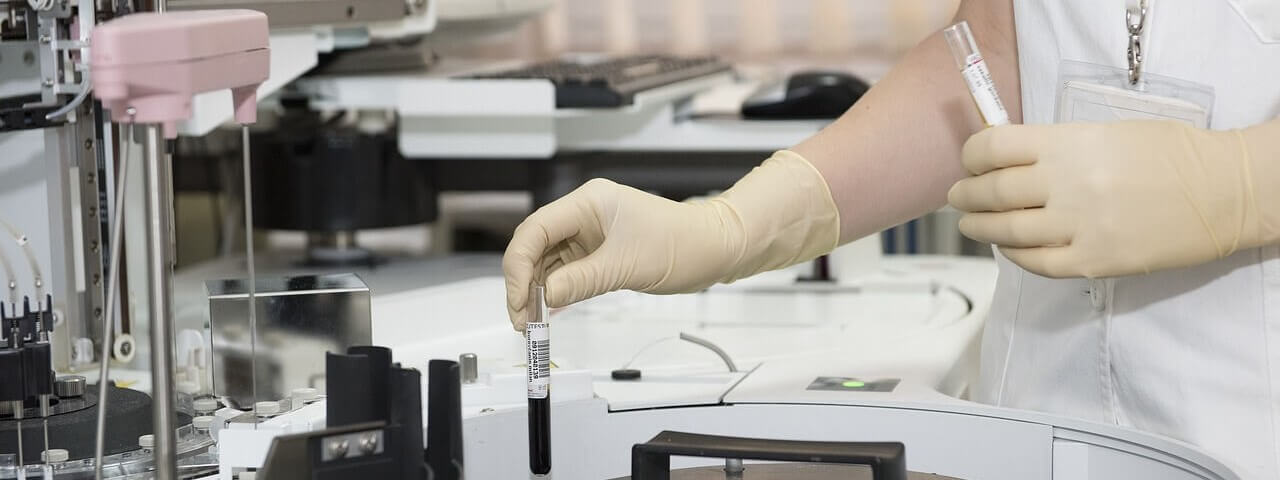PETA’s TraumaMan Donations Save Thousands of Animals

For decades, medical professionals around the globe have carved open the chests, throats, abdomens, and limbs of thousands of live dogs, pigs, sheep, and goats before killing them as part of a cruel surgical skills laboratory held during a widely taught training course.
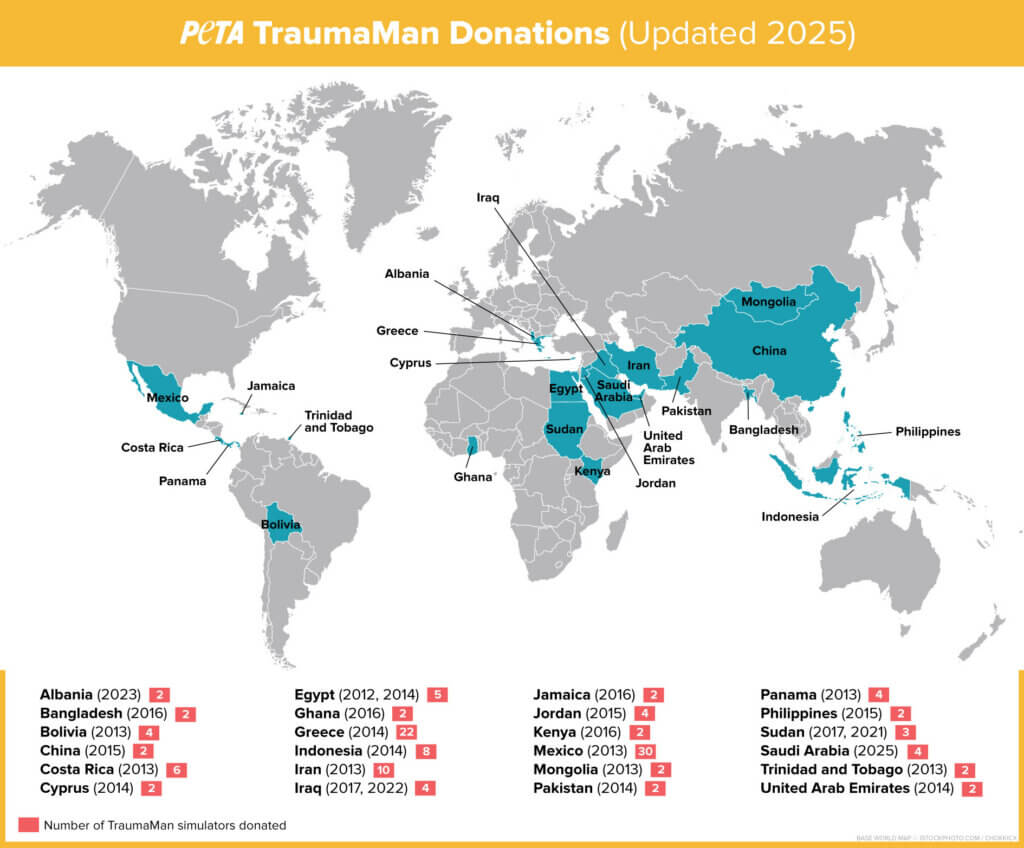
PETA is combating this mutilation of animals and modernizing medical training by bringing advanced animal-free simulator technology to training programs in two dozen countries.
Practicing Surgeries on Animals Won’t Help Humans

Deadly and invasive surgeries on animals compose a portion of Advanced Trauma Life Support training, a program developed by the American College of Surgeons that aims to teach healthcare providers globally how to treat patients with traumatic injuries. The training focuses on providing treatment within the 60 minutes that immediately follow an injury, when prompt and effective care is crucial.
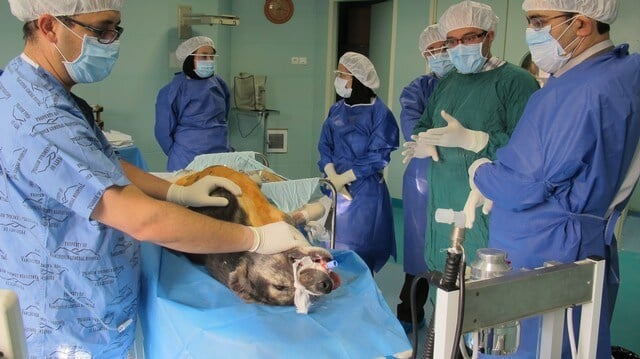
By practicing on animals, participating surgeons are crucially deprived of a working familiarity with complex human anatomy. Human anatomy differs greatly from that of other animals, which makes cutting open other animals to learn how to treat humans’ life-threatening injuries pointless, cruel and highly ineffective.
Animal-Free Medical Training Benefits Everyone

The TraumaMan simulator, manufactured by Simulab Corporation, offers an advanced human-relevant training model that allows surgeons to practice drills without mutilating and killing sensitive animals. The high-tech human surrogate provides a breathing, bleeding human torso with realistic skin, tissue, ribs, and internal organs.

The simulators offer vital benefits over animal-based exercises. The TraumaMan systems are more portable, less costly, and reusable. Studies show that doctors who learn lifesaving surgical skills on TraumaMan are more proficient than those who slice up animals.
PETA’s Global Outreach Takes Animal Abuse out of Medical Training
PETA has donated 128 TraumaMan simulators, worth several million dollars, to Advanced Trauma Life Support programs in 24 countries, including Albania, Bangladesh, Bolivia, China, Costa Rica, Cyprus, Egypt, Ghana, Greece, Indonesia, Iran, Iraq, Jamaica, Jordan, Kenya, Mexico, Mongolia, Pakistan, Panama, the Philippines, Saudi Arabia, Sudan, Trinidad and Tobago, and the United Arab Emirates. Read about our victories over the years 2014, 2015, 2022, 2023, and 2026.
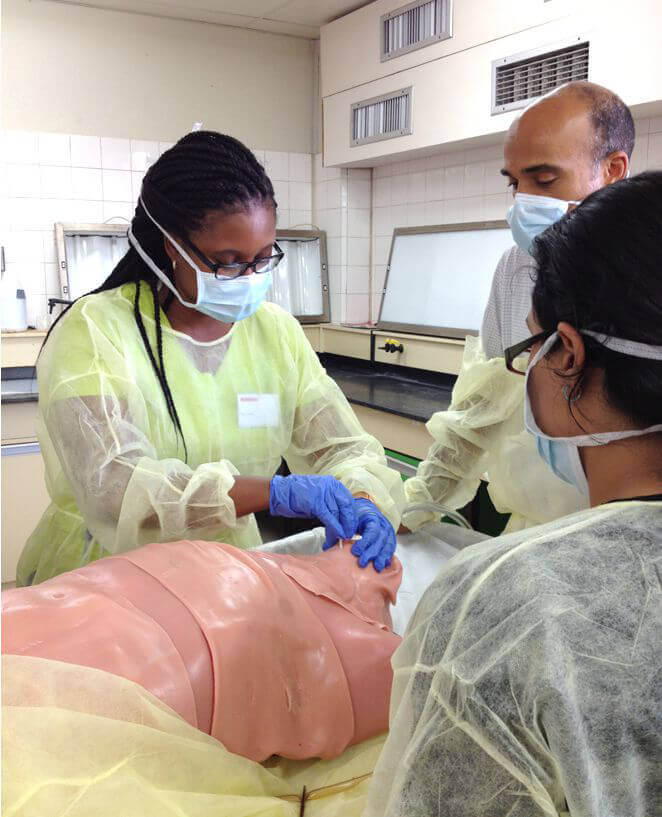
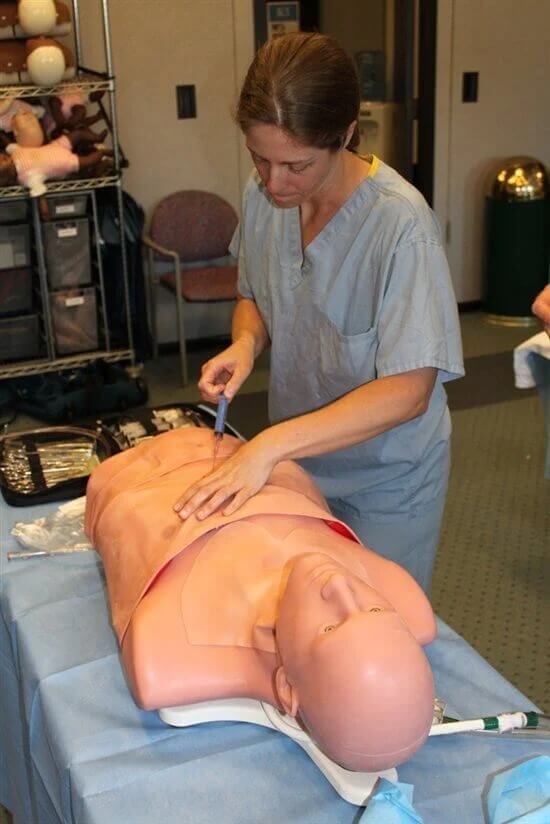
The donations spare the lives of thousands of animals each year and provide surgeons with superior, human-relevant training. Following PETA’s simulator donations, 75% of responding Advanced Trauma Life Support programs now use human simulation models, sparing animals pointlessly cruel mutilation and death.
A 2019 study published by PETA and a surgeon found that our TraumaMan donations “successfully transformed the surgical skills laboratories of … international Advanced Trauma Life Support programs to replace animal use with non-animal simulation models that are more anatomically realistic, cost less, and allow trainees to repeat surgical skills until proficiency.”
PETA’s X-Ray Vision Scouts Out Opportunities to Help Animals
PETA continuously surveys Advanced Trauma Life Support programs to assess the global use of animals and offer support through donations of TraumaMan simulators.

Programs That Use Live Animals
- Ecuador*
- Ethiopia*
- Paraguay*
- Rwanda*
*These countries are actively collaborating with PETA to replace the use of animals in Advanced Trauma Life Support training. PETA is working to obtain additional funding to help support this transition.
Programs That Don’t Use Live Animals
- Albania**
- Australia
- Bangladesh**
- Belgium
- Bolivia**
- Canada (including Greenland)
- China**
- Costa Rica**
- Cyprus**
- Dominican Republic
- Egypt**
- Ghana**
- Greece**
- Indonesia**
- Iran**
- Iraq**
- Jamaica**
- Jordan**
- Kenya**
- Mexico**
- Mongolia**
- Norway
- Pakistan**
- Panama**
- Philippines**
- Saudi Arabia**
- Sudan**
- Trinidad and Tobago**
- United Arab Emirates**
**These countries abandoned the use of animals in Advanced Trauma Life Support training after receiving PETA’s donation of TraumaMan models.
Programs That Haven’t Clarified Their Use of Live Animals or Non-Animal Methods
- Argentina
- Bahrain
- Belize
- Brazil
- Chile
- Colombia
- Cuba
- Curaçao
- Czech Republic
- Denmark
- El Salvador
- Estonia
- Fiji
- France
- Georgia
- Germany
- Grenada
- Haiti
- Honduras
- Hong Kong
- Hungary
- India
- Ireland
- Israel
- Italy
- Japan
- Kuwait
- Lebanon
- Lithuania
- Malaysia
- Moldova
- Myanmar
- Netherlands
- New Zealand
- Nigeria
- Oman
- Palestine
- Papua New Guinea
- Peru
- Portugal
- Puerto Rico
- Qatar
- Singapore
- Slovenia
- South Africa
- South Korea
- Spain
- Sri Lanka
- Saint Lucia
- Sweden
- Switzerland
- Syria
- Taiwan
- Thailand
- Türkiye (Turkey)
- United Kingdom
- Uruguay
- Venezuela
- Zimbabwe
Help End Animal Use in Laboratories
Please urge officials at the U.S. Navy and the Department of War to end deadly and pointless decompression tests on animals in favor of superior, human-relevant, non-animal research methods.
